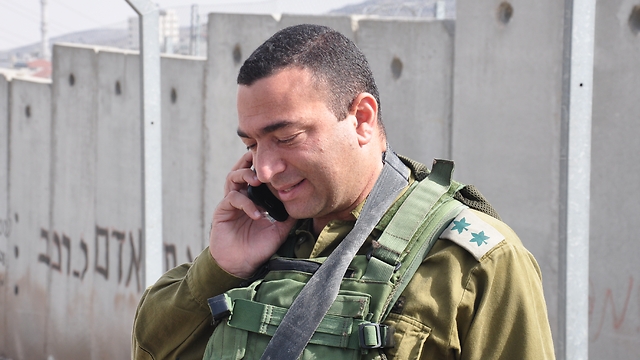
Reading into soldiers' intentions
Op-ed: Decision whether to prosecute IDF troops accused of wrongly opening fire should only reflect situations with clear malicious intents.
I don’t want to address these two cases specifically, as I am unfamiliar with the details. From my experience, and from mistakes I have made in the past, I have learned that it's essential to personally get to know the inquiry or to conduct it yourself before expressing an opinion. Nonetheless, the actual issue requires a few clarifications.
First of all, there is no such concept as "IDF open-fire orders." There are different open-fire orders for each operation, and there are general orders which apply to a situation which is not an operation. For example, if the brigade commander's incident would have taken place in Gaza during Operation Protective Edge, there would have been no dilemma, because during this operation the orders permitted the forces to initiate fire on any enemy, even if he didn't create an immediate life-threatening situation and even if he didn't escape.

Secondly, in a "regular" situation, which is not an operation, there are two binding orders. The first says that you are allowed to fire in order to kill if you or others are in an immediate life-threatening situation. What is a life-threatening situation? There isn't and there must not be an accurate description of a life-threatening situation, as it is a subjective and evasive issue. A soldier will be exempt from any criminal proceeding if he thought (even mistakenly) that he was really in an immediate life-threatening situation.
The order regarding a situation which is not life-threatening, but contains a reasonable suspicion that someone may carry out a hostile destructive activity, is to carry out the suspect arrest procedure. According to this procedure, after calling on the suspect to stop, the forces are permitted to shoot at the suspect's legs. I don’t know what the Binyamin Brigade commander is claiming, but this was surely an incident which justified at least a suspect arrest procedure.
The third clarification refers to the incident in Gaza, in which the battalion commander approved the shelling of a building which also served as a clinic. The main criterion under which his order should be judged is the need. If the decision to fire stemmed from a real operational need, such a shelling is justified even if it turns out to be wrong in retrospect. On the other hand, if the only motive for the shelling was revenge, a red line has been crossed here.
Sometimes there is a big gap between the results and the severity of the action. In many cases, the forces open fire following a legitimate operational consideration, and the result is innocent casualties as well. In other cases, the outcome is insignificant but the act is severe.
Several years ago, for example, soldiers stopped Palestinians at a checkpoint near Hebron and asked them to open their bags (up to this point, everything is okay). When they found food in the bags, they ordered the Palestinians to throw it in the mud and then pick it up. The outcome isn't horrible, but the act itself is horrible. There was no operational need for this, and therefore these soldiers should have been treated harshly.
The distinctions between appropriate and inappropriate, between proper action and suspicion of a criminal offense, are very thin. These are usually incidents which are characterized by a great amount of uncertainty. Moreover, a soldier may not only make one mistake – open fire, which later turns out to be a mistake – but an opposite mistake, which is as lethal: Avoid opening fire and get hurt.
This being the case, it's important to apply two standards. The first is to conduct a thorough inquiry before making any decisions, and the second is to understand that mistakes happen during stressful situations, and that not every mistake reflects negligence or malice. The decision whether to prosecute soldiers should only reflect situations in which there were clear malicious intents.
Major-General (res.) Giora Eiland is a former head of Israel's National Security Council.










